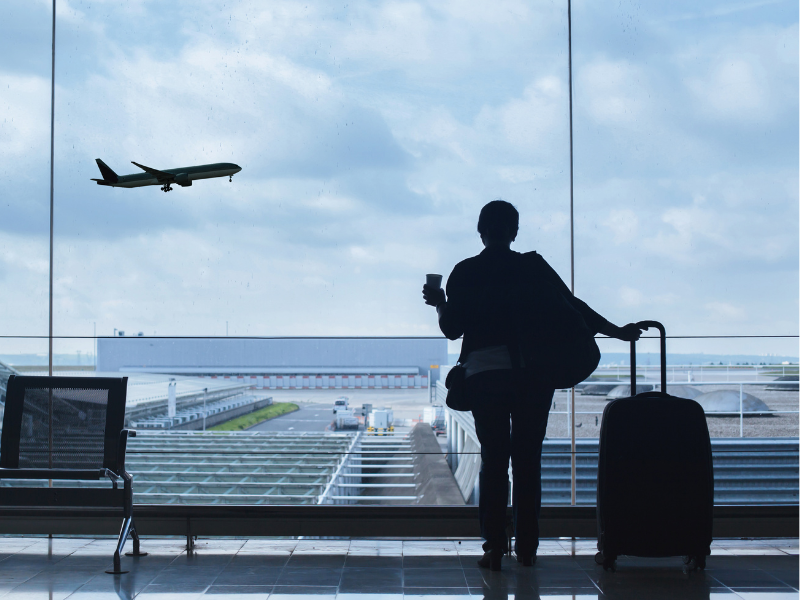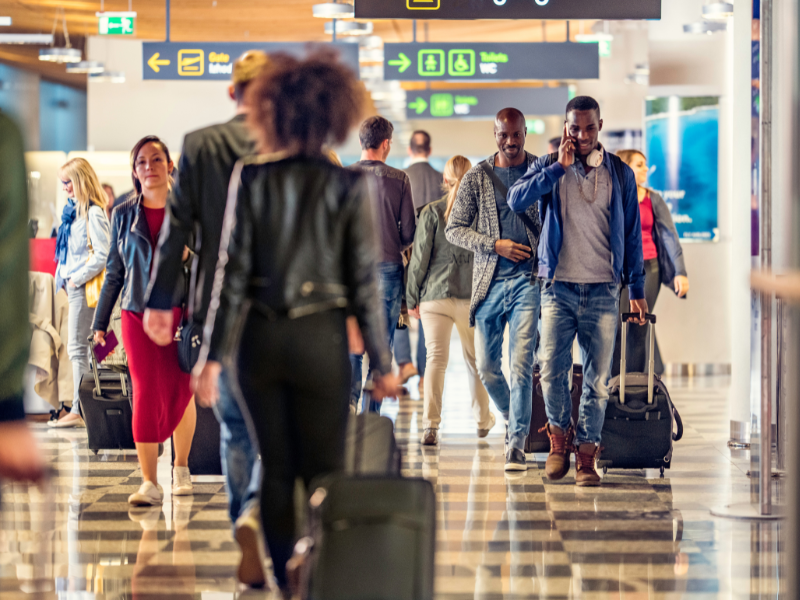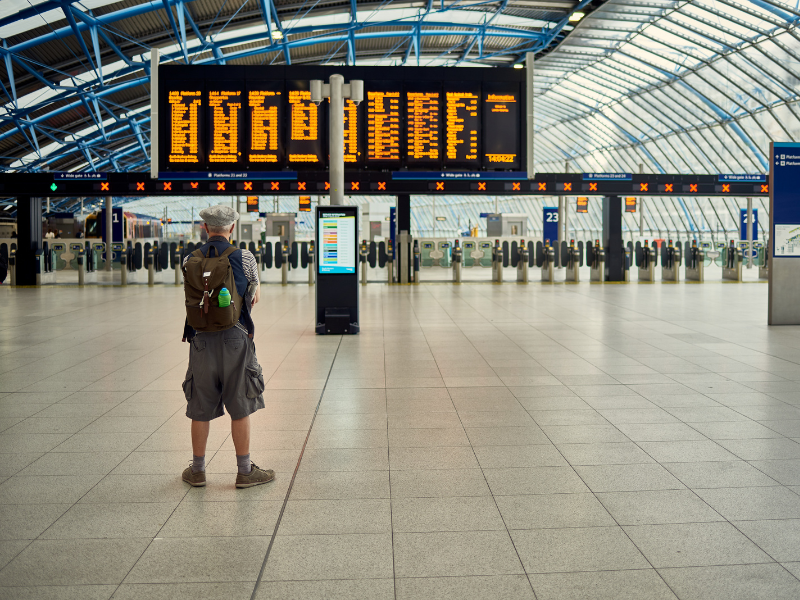
Recent global airline outages, ranging from the Boeing 737 Max 9 crisis to the CrowdStrike system failure this past weekend, underscore the critical importance of being prepared for unexpected travel disruptions. These incidents highlight the vulnerabilities in the aviation industry, where technical failures, regulatory issues, and cybersecurity threats can lead to significant operational challenges. For frequent travelers, who often juggle multiple itineraries, the stakes are even higher. They are more likely to encounter such disruptions, which can lead to missed connections, delays, and even cancellations, impacting both personal and professional commitments.
Effectively managing these airline crises is essential not only for minimizing inconvenience but also for ensuring the safety and security of passengers. Furthermore, travelers themselves can take proactive steps, such as staying informed about their rights, purchasing travel insurance, and maintaining flexible travel plans. Ultimately, the increasing frequency and complexity of airline outages serve as a reminder that preparedness and adaptability are key to navigating the ever-changing landscape of air travel, ensuring a smoother experience even in the face of unforeseen challenges.
Understanding the Nature of Airline Crises
These incidents can be caused by a variety of factors, including weather conditions, technical malfunctions, and staffing shortages. For instance, the U.S. Department of Transportation (DOT)’s Air Travel Consumer Report highlights that in July 2023, the number of operated flights increased by 2.54% compared to July 2022. However, despite this growth, the industry still faced significant challenges. Notably, 15,875 flights, or 2.5% of the total, were canceled in July 2023, a marked increase from the 11,133 flights (1.8%) canceled in the same month the previous year. These statistics underscore the persistent vulnerabilities within the airline industry, demonstrating that even with advancements and increased capacity, the system remains susceptible to disruptions. As airlines and regulatory bodies work to address these issues, travelers continue to experience the effects, underscoring the importance of ongoing efforts to improve reliability and customer satisfaction in air travel.
Preparing in Advance
Travel Insurance: Essential Protection
Investing in comprehensive travel insurance is paramount. Statistics show that nearly 30% of travelers experience flight cancellations or significant delays annually, underscoring the financial risks involved. Having insurance ensures you are covered for unforeseen expenses and can mitigate financial losses during disruptions. Your Travel Advisor will be able to recommend insurance quotes for you when discussing your itinerary proposal so you can travel with peace of mind, knowing your travel dollars are protected.
Alternative Routes: Planning Ahead
Always have contingency plans in place. Research alternative flight routes and connections to your destination. During major airline crises, having backup options can significantly reduce stress and help you reach your destination on time. Your travel advisor is a great resource and advocate for helping you navigate alternative flight routes to get you where you need to go.
Pack Appropriately
If the Crowdstrike failure taught us anything, it’s that even our luggage is not immune to experiencing delays. Whether you check a carry on or a full-size luggage, always pack extra clothes, toiletries, and any medications in your personal item so you have easy and quick access to a fresh outfit and can satisfy your medical needs whatever the circumstance.
Communication Channels: Stay Informed
Utilize airline apps and subscribe to flight status alerts to stay updated on any changes to your itinerary. Effective communication with airlines can expedite rebooking processes and ensure you are informed of the latest developments during disruptions.
Work with an Expert on Your Trip
Consider partnering with a travel advisor who specializes in crisis management and has deep industry connections. They have access to priority services and can provide invaluable assistance during emergencies. Studies indicate that travelers who utilize travel advisors report higher satisfaction rates in handling travel disruptions compared to those who navigate issues independently.
What To Do During an Airline Crisis

Stay Informed: Use Technology
Rely on airline apps, social media updates, and flight status alerts to monitor real-time changes. If you’re working with a travel advisor, they will provide regular updates to you to manage your expectations and provide guidance on the best next steps. During widespread disruptions like the CrowdStrike incident, staying informed helped travelers adjust their plans swiftly and proactively.
Be Flexible and Adaptable
Maintain flexibility in your travel plans. According to industry data, approximately 60% of flight delays are within the airline’s control, highlighting the importance of adapting quickly to unforeseen circumstances and exploring alternative solutions.
Leverage Priority Access
If you have elite status with an airline, you can utilize priority boarding, dedicated customer service lines, and access to airport lounges. These perks can expedite rebooking processes and provide a more comfortable travel experience during disruptions. Not to mention, it can help the time pass more easily.
Mitigating Personal and Business Impact
Transparent Communication
If you’re traveling on business, it’s important to keep your clients and business partners informed of any changes to your schedule. Similarly, if you’re traveling for leisure, it’s important to inform friends, family, or loved ones of the changes to your travel plans. Transparency and proactive communication can preserve relationships and minimize the impact of travel disruptions on important meetings, events, or commitments.
Reprioritize Components of Your Itinerary
During crises, prioritize essential meetings or events and reschedule non-critical activities as needed. Effective itinerary management ensures you can fulfill your obligations despite unexpected travel challenges. Your travel advisor can serve as a sounding board and offer recommendations based on the objectives, interests, and desires you expressed for your travels.
Get Comfortable and Remember to Breathe
Airline disruptions can sometimes bring out the worst in anyone, which is why it’s important to lean on factors in your control and, above all, remember to breathe! Airport lounges offer a reprieve during stressful travel situations and can help take the load off while the situation remains uncertain. Take advantage of amenities such as Wi-Fi, refreshments, and quiet workspaces to stay productive and relaxed while waiting for rebooked flights.
Leveraging Concierge and Travel Services
Concierge Support
Utilize your travel advisor’s concierge services for seamless rebooking, accommodations, and ground transportation arrangements during emergencies. Their expertise and industry connections can streamline processes and minimize disruptions.
Premium Solutions as a Fallback
In extreme cases, consider private aviation alternatives. Chartering a private jet can provide flexibility and efficiency during widespread airline disruptions, ensuring you arrive at your destination on time and with minimal hassle.
Post-Crisis Follow-Up

Advocate for Your Rights
Provide feedback to airlines regarding your experience during disruptions. Many carriers offer compensation for inconveniences such as flight cancellations or significant delays. Seeking compensation ensures your voice is heard and encourages airlines to improve crisis management strategies. In addition to supporting you before and after your journey, your travel advisor will be a great resource to aid you in the feedback collection process.
Always Look for Areas of Improvement
Evaluate your travel preparedness strategy after each crisis. Learn from the experience and update your plans accordingly to enhance future travel resilience and minimize the impact of potential disruptions.
Conclusion
Navigating airline crises requires foresight, flexibility, and access to reliable support systems. By preparing in advance, leveraging technology, and partnering with experienced travel advisors, frequent travelers can mitigate the impact of disruptions and maintain continuity during travel challenges.
Consider consulting with a travel advisor for personalized crisis management strategies and expert guidance on enhancing your travel preparedness. Their specialized knowledge and resources can empower you to navigate airline crises with confidence and minimize disruptions to your professional and personal life.
About Villagro Travel Design
Founded by Felicia Daniele, Villagro Travel Design is a boutique travel advisory designing bespoke experiences for immersive travelers. With an extensive network of international connections and a holistic approach to travel planning, we help clients travel authentically on indulgent journeys full of meaningful encounters and unforgettable moments that delight, revitalize, and inspire.
Learn more at villagrotravel.com to start designing your journey today.